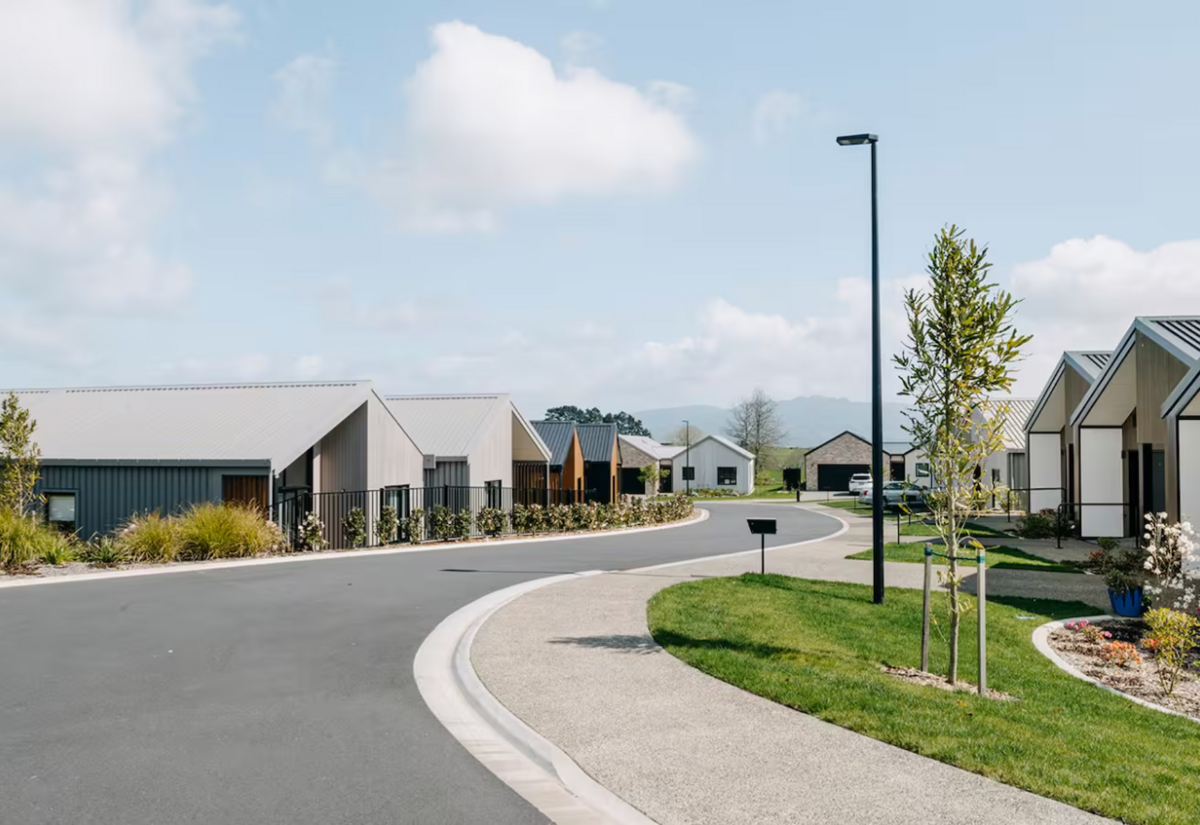Dispute over Warkworth land rezoning sparks legal challenge
01 April 2025, 6:24 PM
 Arvida retirement village proposal
Arvida retirement village proposalA dispute has emerged in Warkworth, located 45 minutes north of central Auckland, concerning the future of a large block of farmland on Matakana Road, near Sandspit Road and the Warkworth Golf Club. The debate involves land use, urban expansion, the classification of prime soils, and the Auckland Council’s planning process.
Arvida, a retirement home company, owns 55 hectares of the 140-hectare block and has proposed a private plan change to rezone the entire area as Residential: Mixed Housing Urban. The company intends to establish a retirement community on 22 hectares and sell the remaining 33 hectares to developers. The proposed zoning change would also allow the other landowners within the block to develop their properties. If fully developed, the area could double the size of Warkworth east of the old state highway.
The Auckland Council, led by Mayor Wayne Brown, voted 17-3 against the proposal, with Deputy Mayor Desley Simpson abstaining. The council opposed rezoning the entire block but did not object to the retirement village itself. Council members raised concerns that the application was not aligned with urban planning objectives and could encourage land banking—where land is purchased on the outskirts of a city with the expectation of selling it at a higher price as urban expansion progresses.
Arvida has announced plans to appeal the council’s decision to the Environment Court, arguing that the council exceeded its obligations under the Resource Management Act and did not follow appropriate planning practices. The company maintains that rezoning the wider area would support a coordinated approach to development rather than allowing piecemeal growth.
The land in question is predominantly zoned Future Urban, though 29 hectares lie outside the Rural-Urban Boundary (RUB) and are classified as Mixed Rural. The proposed rezoning would effectively shift the RUB north. Council officials presented multiple options, including adopting the proposal, rejecting it outright, proceeding with a resource consent process, or accepting the proposal for independent review. The council opted to reject it.
Concerns were raised about infrastructure readiness, as the Future Development Strategy 2023-2053 designates Warkworth North for urban development from 2035 onwards. Transport, water, and wastewater upgrades would be required earlier than planned if the proposal proceeded. Arvida indicated its willingness to fund specific infrastructure upgrades, including stormwater and wastewater management, road improvements, and council development contributions. However, officials noted these commitments were not legally binding, and no current funding was available for all necessary infrastructure, particularly transport.
The proposal also brought attention to the classification of prime soils. The 29-hectare area includes land identified as highly productive under national and local policies, though Arvida disputes the significance of this classification. The council relies on the NZ Land Resource Inventory, which states that the area contains prime soils, and a recent Environment Court decision affirmed the importance of these maps in the absence of more detailed assessments.
Urban sprawl was another key issue, with some councillors arguing that Warkworth has sufficient Future Urban-zoned land and should not expand further. Others disagreed, particularly representatives from areas with significant productive land and housing developments. Infrastructure constraints, particularly the absence of public transport funding for the area, were also raised as a challenge.
The government’s approach to urban growth may influence future outcomes. Infrastructure Minister Chris Bishop has indicated support for both increased housing density and urban expansion, proposing the removal of the RUB. Additionally, policies protecting elite soils are under review following recent government changes.
The council’s decision reflects broader debates over urban planning, infrastructure readiness, and the balance between development and land conservation. The Environment Court will now determine whether Arvida’s proposal can proceed.



